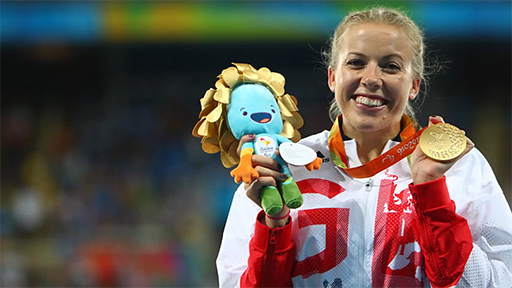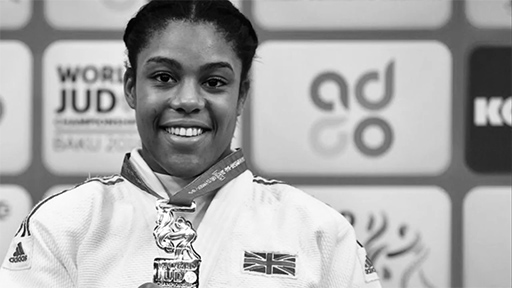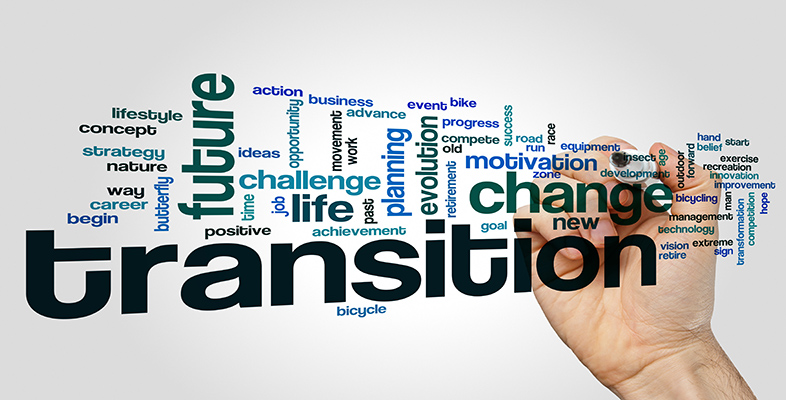1 The need for a life outside sport
As you saw in Session 2, research has shown that having a strong athletic identity can make some career transitions such as retirement or injury more difficult (e.g. Murdock et al., 2016). It was suggested that athletes should develop aspects of their life outside sport to help them cope with future transitions. You will explore this further in the next activity.
Activity 1 Life outside sport
Watch the two videos below in which Hannah Cockcroft (athletics) and Nekoda Smythe-Davis (judo) talk about the importance of developing a life outside sport. As you watch, make a note of the areas of their lives they developed beyond competing in their sports and the benefits they felt they gained from doing so. Then think about how this might impact on you or any athletes you support – what might you do differently having watched these videos?

Transcript: Video 1
[MUSIC PLAYING]
[TEXT ON SCREEN: Hannah Cockcroft is the current World and European champion, a world record holder and multiple Paralympic gold medallist. Hannah is a #More2Me champion.]
[MUSIC PLAYING]
[TEXT ON SCREEN: Outside of sport Hannah is a keen baker having appeared on Channel 4’s Celebrity Bake Off. She’s also an aspiring TV presenter having already presented on BBC’s Countryfile. Meanwhile Hannah is in full-time training as she heads towards the 2020 Paralympic Games. #More2Me. For more information go to: https://www.eis2win.co.uk/service/performance-lifestyle/]

Transcript: Video 2
[MUSIC PLAYING]
[TEXT ON SCREEN: Nekoda Smythe-Davis is a judo Commonwealth champion and World Championships Silver and Bronze medallist. Nekoda is a #More2Me champion.]
[TEXT ON SCREEN: After Rio 2016, along with support from her EIS Performance Lifestyle advisor, Nekoda decidely to actively plan for life after sport...]
[TEXT ON SCREEN: What would your advice be to other elite athletes?]
[TEXT ON SCREEN: Why are you supporting the #More2Me campaign?]
[TEXT ON SCREEN: Nekoda is currently in full time training. She has completed her Level 3 coaching certificate. She regularly gives motivational talks and speeches in her spare time. And has recently become a dog owner! #More2Me. For more information go to: https://www.eis2win.co.uk/service/performance-lifestyle/]
Discussion
Hannah felt that it was important to develop her life outside sport and spoke about education, media work and socialising as examples of areas she had developed. She felt that these have helped her grow as a person and allow her to switch off from the pressure of sport. She also felt that this would help her to be better prepared for retirement in the future.
Similar to Hannah, Nekoda spoke about the importance of developing her education and broadening her life experiences. She discussed several benefits of this including preparation for life after sport and skill development. She also noted the importance of being able to switch off from sport and stated that she ‘would go stir-crazy’ without other things in her life!
As you saw in previous sessions, there is evidence to support the perspective of these athletes. Research such as Brewer and Petitpas (2017) and Torregrosa et al. (2015) suggest that athletes who develop a ‘multidimensional identity’ cope better with transitions and tend to perform better than athletes who have a ‘unidimensional identity’. In a multidimensional identity, athletes develop different aspects of their identity − such as athlete and student − whereas those with a unidimensional identity concentrate on developing only their athletic identity.
If you are an athlete yourself or involved in supporting athletes, it is important to take note of this. For example, if you are a coach you might find it useful to talk to your athletes about developing their identity beyond sport and encourage them to develop other interests.
The videos you have just watched are part of the English Institute of Sport (EIS) #More2Me campaign [Tip: hold Ctrl and click a link to open it in a new tab. (Hide tip)] launched in 2019 to help athletes develop a better sport–life balance. This campaign is part of their performance lifestyle programme. You will explore performance lifestyle next.
